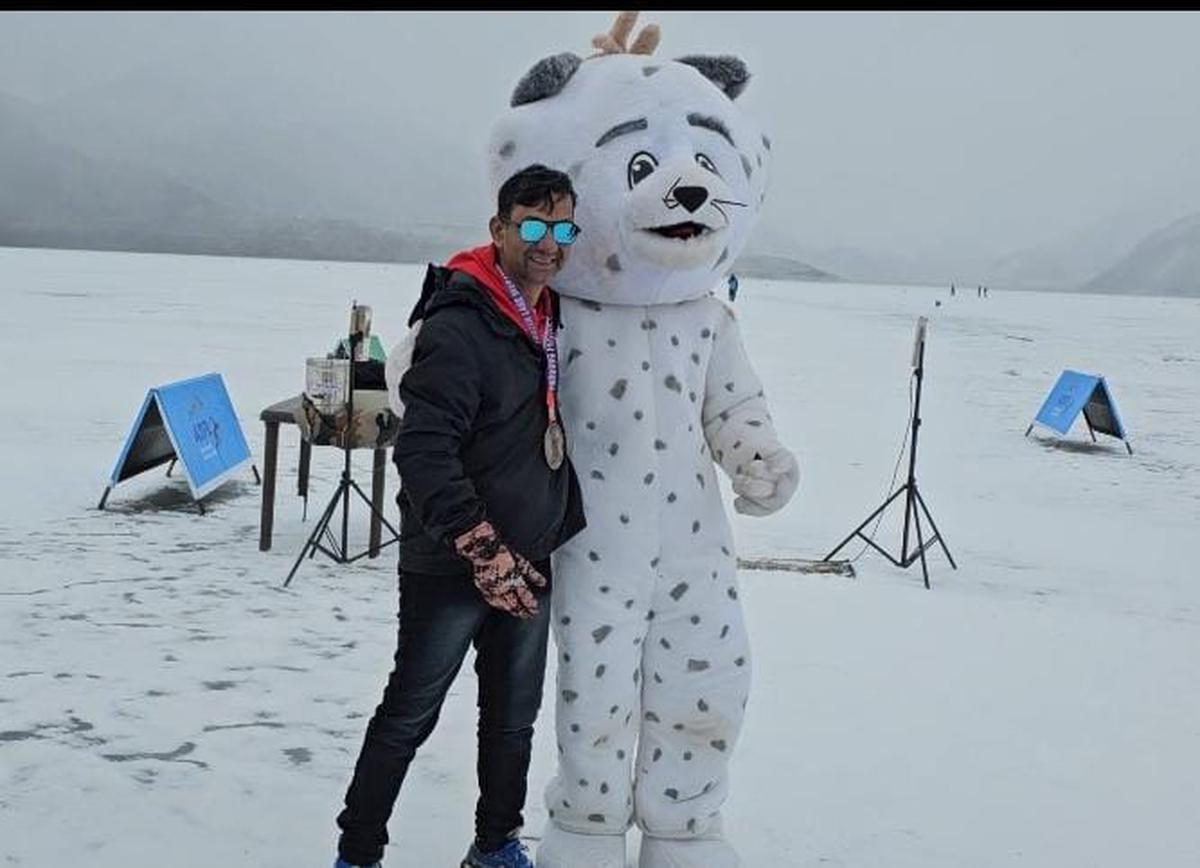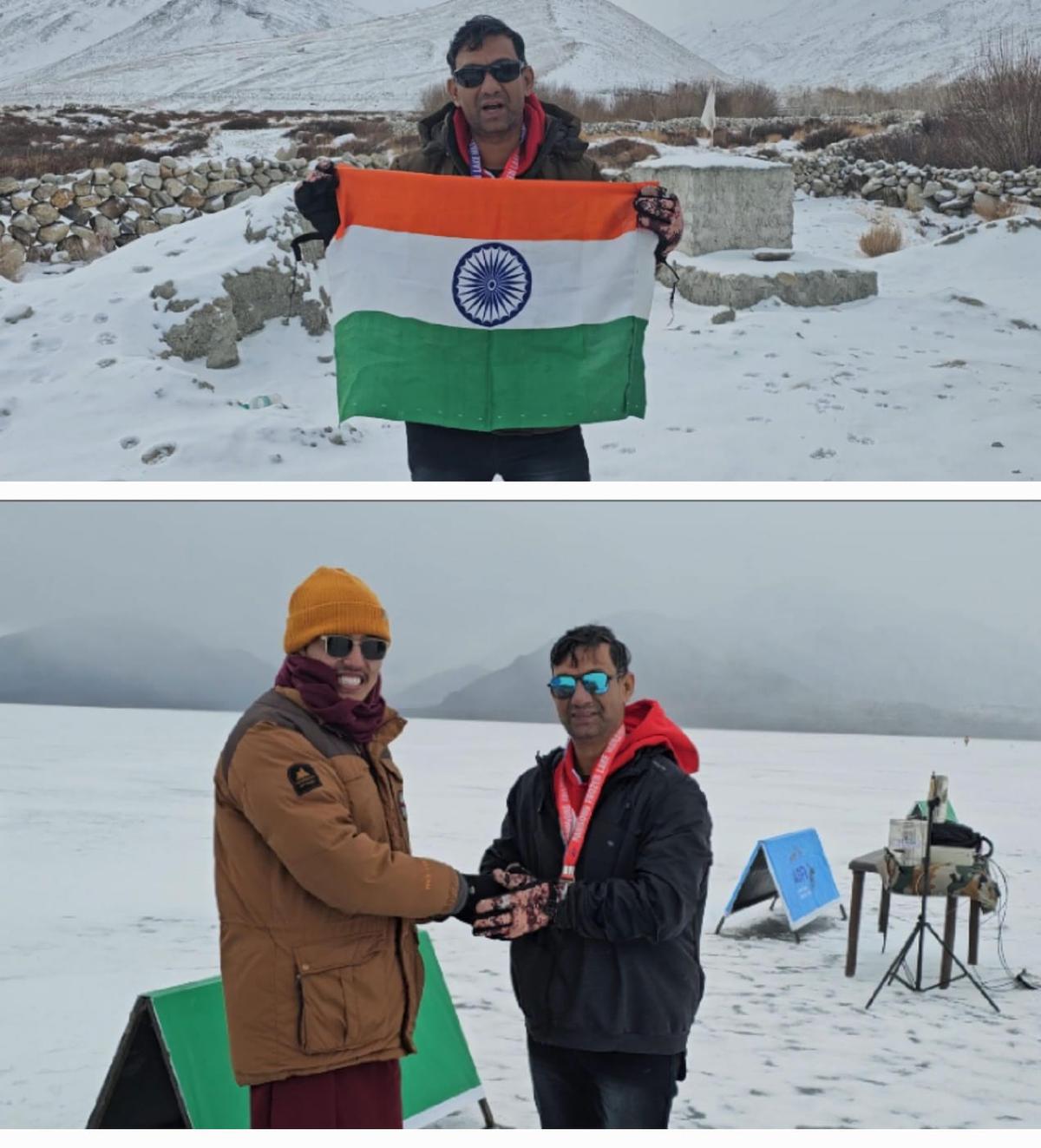[ad_1]

Dr Umesh Bhammarkar at Pangong
| Photo Credit: Special arrangement
This month (February 2024), Dr Umesh Bhammarkar from Hyderabad ran one of the most difficult marathons. He ran on the frozen Pangong Lake (world’s highest saltwater lake) in Leh Ladakh. The lake is located at an altitude of 14,272 feet and around 120 athletes from around the world participated in this marathon organised by Adventure Sports Foundation of Ladakh with the support of the Administration Union Territory of Ladakh and 14 corps of the Indian Army.
The World’s Highest Frozen Lake Marathon-2024 is officially registered in the Guinness Book of World Records. Even though Bhammarkar had signed up for the full marathon (42 kilometres), a change in climatic conditions on the day of the run with the wind velocity going up, saw the organisers restricting the run to 21 kilometres. Bhammarkar completed the run in over three hours and is back in the city and his clinic. “All the runners who signed for 42kilometers had to do 21 kilometeres on the advice of the organisers.
Having run the second edition of this marathon, the marathoner says he ran almost all hills in the Hyderabad and spent an average of two to three hours at Snow World (an artificial snow theme park) to get a feel of minus temperatures. Apart from adding layers of clothing to keep warm, runners wear shoes with a special attachment to the sole to avoid skidding. His preparation involved a lot of strength, plyometric, resistance and functional training.

Dr Umesh at Leh Ladakh
| Photo Credit:
Special arrangement
Umesh has been running marathons since 2015 and has covered almost all in India. How does he rate the Pangong Lake marathon in terms of difficulty? “On a scale of 1 to 10, it has to be 10, it was more challenging than other runs I have done so far. The altitude, cold and wind velocity make it one of the most difficult runs in India. It is also a prestigious marathon organised by the Indian Army. At times, the wind velocity is so high that your nose gets blocked and visibility comes down.” However, the most difficult part for Bhammarkar was the nosebleed, something many people experience at such altitude. “Add to all these difficulties, I also experienced numbness in my toes and fingers due to the cold. The temparature there was between -27 degrees centigrade to -30 degrees centigrade,” he adds.
Sharing memories of how he started to run, Bhammarkar says the runners on Necklace Road with the special jersey and marathon bib inspired him. “On weekends, I would see marathon runners all along Necklace Road. I was intrigued by the joy on their faces on completion. I signed up for a five-kilometre run just to get a feel for it.”

Dr Umesh on completion of his run
| Photo Credit:
Special arrangement
He was not only surprised that he completed the run, but he also learnt there can be a special coach for runners. “That’s when I first met my mentor Jacqueline Babitha Xavier (JBX). She is a running and fitness coach. I decided to give my newfound passion (running) the much-needed attention. While training with JBX, I saw that with proper guidance, one can run better, breathe better and avoid injuries.”
There was no looking back for Bhammarkar after that. Even though he heard about frozen lake marathons in Switzerland and Antarctica, he wanted to do his first in India.
[ad_2]
Source link





